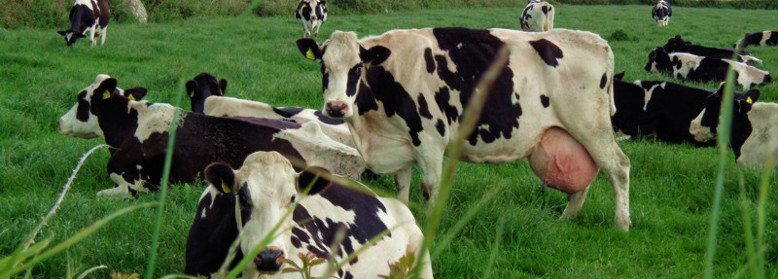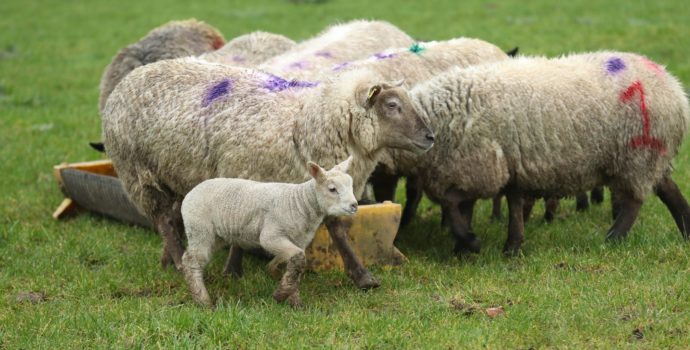IFA Looks for Changes to Eu Veterinary Medicinal Proposals

In meetings this week with Irish MEPs, IFA Animal Health Chairman Bert Stewart again outlined the concerns farmers have with EU proposals for the regulation of veterinary medicinal products.
He said these regulations have the potential to impact negatively on Irish farmers and their ability to ensure the health and welfare of their animals in a practical and cost-efficient way. “They will place unnecessary obstacles to the supply and availability of products such as vaccines and doses. IFA has consistently identified key areas that must be addressed to allow farmers access to competitively priced veterinary medicines”.
Bert Stewart said it is incumbent on the Minister for Agriculture Michael Creed and our MEPs to recognise the professionalism of farmers and their role in protecting the health and welfare of their animals. They cannot be hindered by increased costs and bureaucracy.
He said the current proposals for veterinary medicinal products fail to adequately distinguish between antibiotics and all other products, which are key health and welfare products on farms.
In the context of appropriately addressing the AMR concerns, Bert Stewart said the emphasis must be on competitive prices for key animal medicines such as vaccines and doses. Limiting access to these types of products is counterproductive to reducing the use of antibiotics.
Bert Stewart said veterinary medicinal products are an expensive and vital annual input for farmers in protecting and maintaining the health and welfare of their animals. He said it is of critical importance that access remains in a competitive market with minimal bureaucracy.
Availability of Veterinary Medicines
The current proposals fall short of establishing a single centralised licensing system for all veterinary medicine products in the EU. Once licensed in the EU veterinary medicines should be available in all member states to maximise availability of products for farmers and provide a transparent price comparison system throughout the community. The current individual member state licensing system adds unnecessary costs for farmers and reduces the availability of product.
Cross Border Trade of Veterinary Medicines
Farmers must be facilitated in sourcing veterinary medicines from other member states to maximise competition in the supply of veterinary medicines
Definition of ‘Antimicrobial’ for the purpose of the regulation
While it is broadly understood that antimicrobial refers to antibiotics and the developing antibiotic resistance, the use of the broader definition in the Regulation may have unintended consequences for the supply and availability of some products.
Clearly the intention of the regulation in relation to antimicrobial products is to address the growing concerns for antibiotic resistance in both humans and animals. In this regard and to facilitate appropriate controls on the prescribing and supply of antibiotics and avoid the potential implications for a wider group of veterinary medicines the definition for the purpose of the regulation should refer only to antibiotic products and products containing antibiotics.
Validity period for prescriptions for antimicrobial products
The proposal for a 5-day validity period for a prescription for antimicrobial products, particularly based on the broader definition applied in the regulation, warrants further serious consideration both in terms of the practicality and impact on product sourcing and additional costs that may arise.
Prescriptions for veterinary medicinal products
The Regulation must provide member states with the flexibility to allow prescriptions to be provided by suitable persons other than veterinarians for products that do not contain antibiotics.
Licensing, Categorisation and Supply routes of veterinary medicinal products
It is not necessary, practical or cost efficient to categorise all veterinary medicinal products as POM. This effectively removes vital competition from the supply of products and adds further cost for farmers. In order to be consistent with the stated objectives of ‘Prevention is Better than Cure’ and reduced antibiotic usage in farm animals these regulations must ensure treatment and preventative medicines not containing antibiotics are readily and cost efficiently available to farmers. This must be achieved by providing member states with maximum flexibility in determining the categories and supply routes for veterinary medicines that do not contain antibiotics.
New Products
The lack of development of new veterinary medicinal products is a major concern for the sector. Categorising new veterinary medicinal products as POM for a period after licensing will limit the availability of these products and increase their cost. New products not containing antibiotics should be available on licensing to farmers under the LM category where appropriate.




